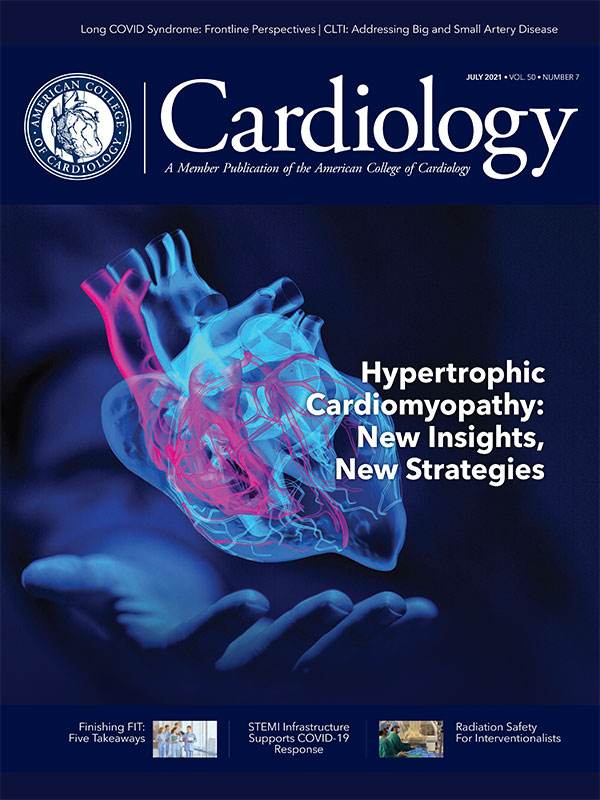Feature | Voices From the Front Line: Experience With Long COVID Syndrome

As the COVID-19 pandemic continues to evolve, a new phenomenon has arisen: Long COVID syndrome. A proportion of patients infected with COVID-19 do not completely recover and continue to suffer with a range of symptoms, including fatigue, shortness of breath, chest pain, "brain fog," sleep disorders, fevers, gastrointestinal symptoms, anxiety and depression. In some, these symptoms emerge farther out from the initial infection. Symptoms can persist for months and range from mild to incapacitating.
The National Institutes of Health is now calling this Post-Acute Sequelae of SARS-CoV-2 infection (PASC) and has launched a new initiative, supported by new funding from Congress, to research the prolonged health consequences of SARS-CoV-2 infection. Others too are researching Long COVID to understand the long-term impact of COVID-19, including in the cardiovascular space, and to find effective treatments and management strategies.
In the meantime, on the front line, patients are finding care in post-COVID clinics, often at academic medical centers. Cardiology talked with three cardiologists involved with the programs at their centers to learn more about what these patients are facing and how they are being managed now.
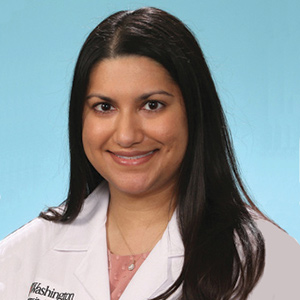
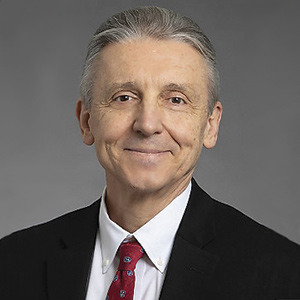
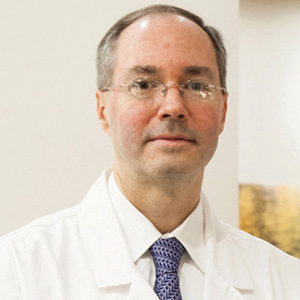
Amanda K. Verma, MD, FACC, is a heart failure and cardiac transplant cardiologist at Barnes-Jewish Hospital and assistant professor of medicine at Washington University School of Medicine in St. Louis, MO. Joseph Mularczyk, MD, FACC, is a cardiologist with Rush University Medical Group and assistant professor of medicine at Rush Medical College, both in Chicago, IL. Sean P. Pinney, MD, FACC, is co-director of the Heart and Vascular Center, director of Clinical and Translational Research, and director Advanced Heart Failure and Transplantation at the University of Chicago Medicine, where he's also professor of medicine.
Long COVID Presentation?
Pinney: The most consistent symptom has been one of overwhelming post-exertional fatigue. Patients simply feel wiped out after any physical or mental exertion. Second most common is chest pain, exertional dyspnea and palpitations. I've seen only one patient with symptoms suggestive of postural orthostatic tachycardia syndrome (POTS), but the patient declined further evaluation, including a tilt-table test.
Verma: Most present with palpitations, chest pain, dyspnea and fatigue. These symptoms are debilitating to patients who were previously very active and now cannot walk up a flight of stairs without experiencing some or all these symptoms. The most common diagnoses we make include new-onset or worsening hypertension or a relative hypertension, tachycardia (significant sinus tachycardia with minimal exertion and some atrial arrhythmia, a few patients with POTS but not as common as thought), atypical chest pain, dyspnea, and a small subset of patients with myocarditis.
Sean P. Pinney, MD, FACC
Mularczyk: People who present for a cardiac evaluation have a wide spectrum of symptoms. The most common are rapid heart rates and chest pains. Because COVID is predominantly a pulmonary disease, those with shortness of breath are frequently evaluated first by a pulmonologist. In Long COVID syndrome, it's been found that excessively and inappropriately rapid heart rates are common. Inappropriately slow heart rates are also seen, but less commonly. We believe these excessive changes in heart rate are most likely not a cardiac problem, but more likely due to neurologic involvement with the COVID infection. COVID infection can affect the autonomic nervous system and cause autonomic dysfunction/insufficiency. Many people present with the concern of having POTS.
Evaluating Long COVID?
Verma: The clinical scenario drives the testing, but most patients will undergo initial testing that includes EKG, transthoracic echo, NT-proBNP and high-sensitivity troponin, inflammatory markers and Holter monitor. Based on these tests and/or if there is high suspicion, additional testing may include: cardiac MRI (especially for abnormal echo or refractory chest pain), stress testing, cardiopulmonary exercise stress testing, left/right heart catheterization, and cardiac PET/CT.
Mularczyk: At the first clinic visit, the rhythm evaluation and a phonocardiogram evaluation are available. Electrocardiograms and heart rhythm monitoring are common. The most frequently ordered test is an echocardiogram to evaluate for decreased heart function and possible ongoing inflammation of the myocardium itself and the pericardium. Because of the special expertise at Rush in evaluating ongoing myocardial inflammation with a cardiac MRI, this is ordered when it's likely the result will impact care. Blood work is often ordered to look for ongoing heart involvement with infection and ongoing inflammation.
Pinney: All the patients I see have had a previous echocardiogram. I frequently order a cardiac MRI, particularly in patients with chest pain, to look for hyperenhancement suggestive of myocarditis or pericarditis. I will order ambulatory ECG monitoring or cardiopulmonary stress testing when indicated.
Managing Long COVID?
Mularczyk: There are no presently prescribed best practices or standards of care when treating Long-COVID patients with cardiac complications. Therapies we use are directed at the complication caused by the COVID infection. In the setting of rapid heart rates, there are many extremely safe medications which will alleviate that problem. Studies suggest the rapid heart rates will normalize over time with or without treatment. In the setting of fatigue and shortness of breath due to systolic dysfunction, there is a well-defined regimen of safe and effective medications available which would be prescribed. Ongoing inflammation can be treated with several different anti-inflammatory drugs. Many patients are simply reassured that their long-term prognosis is excellent and improvement of their symptoms is expected in view of normal test results that are acquired.
Joseph Mularczyk, MD, FACC
Pinney: So far, I have not found a magic bullet. I recommend graded aerobic exercise as this has seemed to lessen symptoms over time. I hear yoga has also benefitted some patients in our program.
Verma: When we first started the clinic, there was a lot of trial and error. Now, we have standard initial therapies that tend to work for most people. For palpitations with tachycardia, low-dose beta-blockers or ivabradine can provide significant benefit to alleviate symptoms. Calcium channel blockers do not seem to be as effective with managing tachycardia. Chest pain often responds to high-dose nonsteroidal anti-inflammatory drugs and sometimes even colchicine (even when no evidence of pericarditis on imaging) or gabapentin. We have tried steroids, but this does not seem to make much of a difference. Inhalers can help with dyspnea and chest tightness. Exercise programs and referral to our physical and occupational therapy program who is working with post-COVID patients often helps as well.
Warning Signs or Risk Profiles?
Pinney: I can't say that a risk profile or specific phenotype has emerged. Our center has reported that patients who are deficient in Vitamin D, particularly Black patients, are more susceptible to severe COVID-19. It will be interesting to see if this holds for patients with PASC as well.
Verma: Patients with underlying cardiovascular comorbidities typically have an expected Long COVID course similar with any patient with critical illness who needed ICU level care. The typical patient I see though had a mild course of COVID-19 and thought they were better, only to have these symptoms persist or emerge a few weeks later. In general, it seems as though if patients are doing well around. six weeks after having COVID-19, most will not have Long COVID syndrome.
Mularczyk: Long-term follow-up of people who have experienced COVID infection ranging from very mild to severe enough to lead to hospitalization is ongoing. There is no demographic which appears to be more or less vulnerable for Long COVID syndrome. Many people who have experienced only mild initial symptoms have progressed to have significant long-term symptoms.
Other Observations or Insights?
Pinney: The patients I've seen have been very grateful and often relieved to learn they are not alone. I believe it is critically important to listen and to validate that what they are experiencing is real. Even though we may not understand the mechanisms leading to Long COVID, it's important for us as clinical researchers to catalog the natural history of this syndrome and keep an open mind as to the protean ways it affects our patients.
Amanda K. Verma, MD, FACC
Verma: A lot of the testing comes back normal. Many patients have been evaluated by other physicians and were told "nothing is wrong." Patients are frustrated and a lot of what we do is counseling and acknowledging their symptoms are real and sharing that although testing is normal, perhaps the current tests are not sensitive enough to detect what is going on. I encourage physicians to pay attention to subtle details – I often walk with a patient with a pulse oximeter up and down the hall in our office and see heart rates that were in the 60s at rest jump into the 140s +/- drop in the oxygen saturation from 98% to 92%, for example. For patients who were previously healthy and regularly exercising, you can quickly get an idea of why they feel so bad. But just looking at the vitals obtained when they come to clinic or Holter monitor results will not provide this information.
We have a few patients in the clinic who had COVID-19 infection more than a year ago. Some of them whose symptoms have been controlled on medications (primarily beta-blockers) still need them and have recurrent symptoms when trying to come of medications. I am worried some of these issues will become chronic conditions; but I cannot tell in whom, and we do not yet know the implication this may have for their cardiovascular health in the future.
Mularczyk: The long-term questionnaire evaluations which are being followed in people who have had COVID demonstrate that a large proportion of people have had symptoms lasting significant periods of time. The studies show the majority improve over time. Prior experience with the other coronaviruses, SARS-CoV-1 and MERS, is limited and long-term cardiac follow-up was not performed for those viruses.
A Closer Look at Long COVID Clinics
Long COVID programs often are an expansion of existing post COVID-19 clinics. Many use a hub-and-spoke model for centralized intake and referral to the appropriate specialty and designated specialist based on symptoms. At some programs, like at Washington University and Rush University, referrals may come from a primary care physician or even the patient.
Along with providing consistent treatment to patients with a set of symptoms, the centralized intake and referral to specialists helps physicians develop concentrated experience in Long COVID syndrome, notes Verma.
At the University of Chicago, where intake is through general internal medicine, Pinney sees patients with persistent chest pain, palpitations, exertional dyspnea or any signs of heart failure; to date, he's seen about 30 patients.
At Washington University, where 10-15 new symptomatic patients are seen each week, a second cardiologist, David B. Schwartz, MD, PhD, FACC, has joined Verma in serving the cardiac post-COVID clinic, which started in September 2020. Through May 2020, they have seen about 130 patients.
At Rush Medical Center, the multidisciplinary post-COVID clinic is served by physicians from immunology, endocrinology, neurology, pulmonology, cardiology, among others. There are also physicians available for specialized memory testing and psychiatric testing, notes Mularczyk. The intake nurse, with specialized experience in Long COVID syndrome, schedules appointments with the appropriate specialist(s). This may include seeing multiple physicians in the same clinic experience for the patients with symptoms involving multiple organ systems. Visits also can be scheduled online at Rush.Edu/services/post-covid-care, and video visits are common. The team of physicians has a regularly scheduled meeting during which cases are discussed and recent developments and research in Long COVID syndrome are reviewed.
Most of the patients seen in these clinics are young (20-50 years) and the majority are women. A substantial proportion have worked in health care. Most have a limited medical history before COVID-19. Verma notes many do not have a history of cardiovascular disease or comorbidities.
The course of COVID-19 was relatively mild in most of the patients. Hospitalization was not required in a large majority of patients seen in their clinics.
At Rush Medical Center, where some 200 patients have been seen in the post-COVID clinic, the largest group (about 26% of patients) are 31-40 years old; 15% are 40-50 years; 22% are 50-60 years, 23% are 60 years and older, and 12% are 30 or younger. About two-thirds are women. About half (52%) are White, 19% Black and 21% are Hispanic/Latino. However, Mularczyk, wonders whether self-referral to their clinic affects the race/ethnic mix of patients seen there. About half of patients come from outside of Chicago, including out of state.
Around the Table
Long COVID was among the "cardiovascular conundrums" on the agenda for ACC's third virtual Heart House Roundtable focused on COVID-19 on May 26.
In small group discussions, stakeholders tackled diagnostic evaluation, treatment and recovery of patients with Long COVID and identified key questions for further exploration ranging from which symptoms should prompt cardiology referral to which diseases should be ruled out and in whom when diagnosing Long COVID-19. The group also explored which bedside tests should be standard and the appropriate times to order imaging and functional testing. The impact of Long COVID on returning to sports and exercise was also raised.
In general, the participants noted the challenges with the current "data-free zone" and stressed the importance of prioritizing areas of research in order to move the needle forward. "We all have patients who have been suffering for six to eight months and they just want their lives back," said one participant.
In addition to Long COVID, participants also discussed COVID-19-related myocarditis and cardiomyopathy, thrombotic risk in COVID-19 patients, resumption of exercise and sports after COVID-19, and the need to address the very real health care disparities further highlighted by the pandemic in the U.S and around the world.
"To date, we have made real progress in vaccines, research and treatment. However, there are still many unknowns and gaps in care related to issues like myocarditis and cardiomyopathy; thrombotic risk; when to resume exercise and sports; and the ongoing issue of so-called Long COVID-19. Long-term data on vaccines and impacts of the virus will also be critical," said ACC President Dipti Itchhaporia, MD, FACC, during her opening Roundtable address. "The key to our collective success will be our ability to adjust, adapt and rethink. The possibilities for us, our members and patients worldwide are limitless."
Find out more about ACC's latest roundtables at ACC.org/HeartHouseRoundtables.
ACC Giving Back
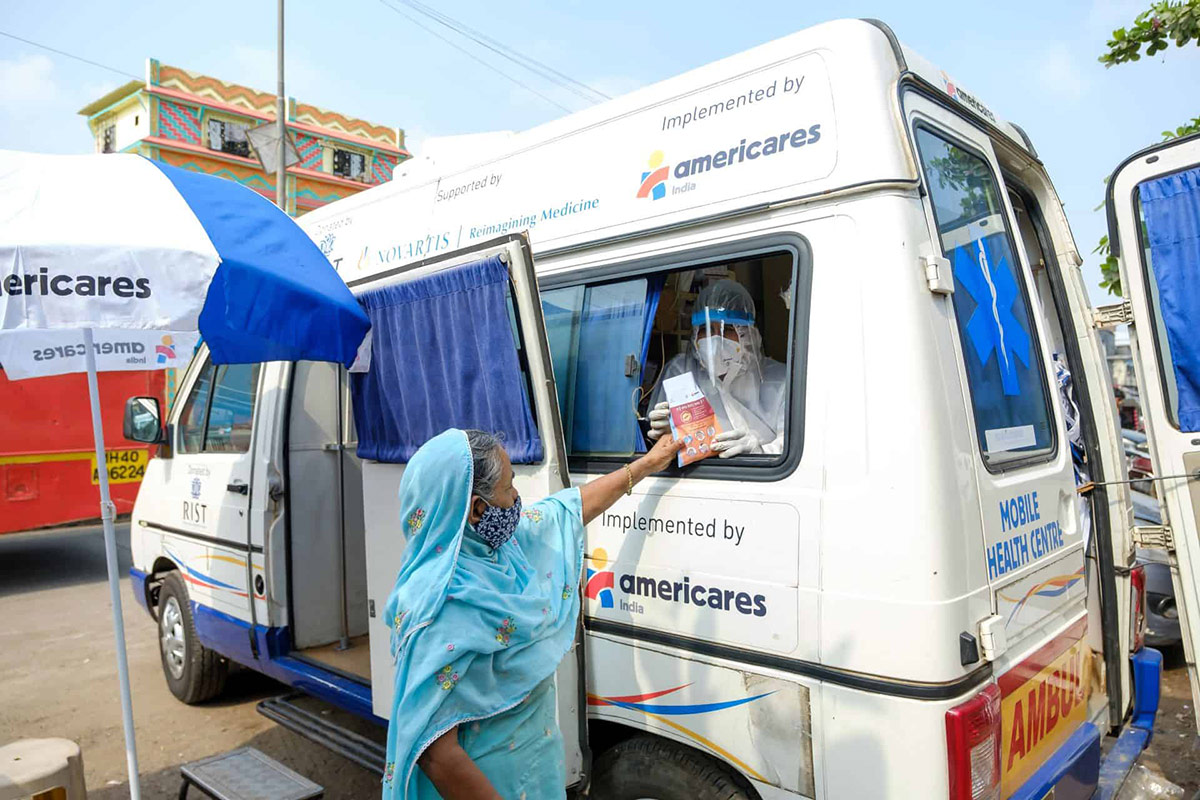
As the latest COVID-19 surges continue to overwhelm countries, particularly India, the ACC remains committed to helping its members, partner societies and hospitals and health systems worldwide who are working tirelessly on the front lines despite dwindling resources and seemingly overwhelming odds.
To that end, the College is proud to support the on-the-ground COVID-19 relief efforts of Americares, a health-focused relief and development organization, by seeding a gift of $25,000. In India alone, where the current surge of COVID-19 cases in South Asia originated, Americares is supporting 50 dedicated COVID-19 treatment facilities with life-saving medical equipment including ventilators and oxygen concentrators, as well as 940,000 units of desperately needed personal protective equipment. They have also fully outfitted and equipped a 30-bed ICU for COVID patients in Mumbai.
"The ACC benefited greatly early in the pandemic from the crucial insights from partners across Asia and Europe whose frontline experience provided pivotal guidance that ACC was able to adapt for its members around the world," said ACC President Dipti Itchhaporia, MD, FACC. "As a global organization, the College is proud to lead its worldwide network for 54,000 members in paying this forward and providing lifesaving resources to clinicians and patients in India and other countries where the pandemic."
ACC members interested in learning more about Americares and helping the ACC reach its goal of providing at least $100,000 in support of efforts in India and elsewhere around the world can go to Americares.org/ACC.
Clinical Topics: Arrhythmias and Clinical EP, Cardiac Surgery, Cardiovascular Care Team, COVID-19 Hub, Heart Failure and Cardiomyopathies, Invasive Cardiovascular Angiography and Intervention, Noninvasive Imaging, Prevention, Atrial Fibrillation/Supraventricular Arrhythmias, Cardiac Surgery and Arrhythmias, Cardiac Surgery and Heart Failure, Acute Heart Failure, Heart Transplant, Interventions and Imaging, Computed Tomography, Magnetic Resonance Imaging, Nuclear Imaging, Hypertension
Keywords: ACC Publications, Cardiology Magazine, Academic Medical Centers, African Americans, Ambulatory Care, Anxiety, Autonomic Nervous System, Brain, Calcium Channel Blockers, Cardiac Catheterization, Chest Pain, Chicago, Colchicine, COVID-19, Critical Illness, Depression, Dyspnea, Fatigue, Fever, Follow-Up Studies, Heart Failure, Heart Rate, Heart Transplantation, Hypertension, Magnetic Resonance Imaging, Medicine, Middle Aged, Myocarditis, Occupational Therapy, Physical Exertion, Physicians, Primary Care, Positron-Emission Tomography, Postural Orthostatic Tachycardia Syndrome, Pulmonary Medicine, SARS Virus, SARS-CoV-2, Specialization, Standard of Care, Tachycardia, Sinus, Tilt-Table Test, Translational Medical Research, Troponin, Universities, Vitamin D, Washington, Yoga
< Back to Listings


